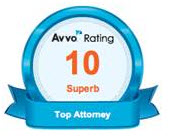Lots of people leap before they look in life, and that tendency can encompass a wide array of situations. One of them should not, however, be Chapter 11 bankruptcy. It may very well be the right option for you, yet it is still a decision that you should come to after really learning what it is all about. Here is some key information to help you be well informed.
Chapter 11 bankruptcy, also called a reorganization bankruptcy, is governed by the United States Bankruptcy Code. You cannot file for it if you had a prior bankruptcy petition dismissed within the previous 180 days for certain reasons. Those reasons include a willful failure to appear in court, failing to comply with court orders and some situations in which there was a voluntary dismissal of the petition because creditors sought relief via the court to recover property they had liens on.
Additionally, you are required to have received qualifying credit counseling within 180 days of filing your Chapter 11 petition. You must also file your debt management plan with the court if one was developed during the credit counseling.
If, with that information understood, you feel that you are eligible for Chapter 11 bankruptcy, you can put together a petition and file it with the court in the same jurisdiction as your primary residence.
You will need to provide the court with a comprehensive package of documents. One is the certificate of credit counseling and another is the debt repayment plan. Also, you'll need to file a schedule of assets and liabilities and a schedule of income and expenditures. A schedule of executory contracts and unexpired leases is also needed, as is a statement of financial affairs. Of course, that is only a part of what goes into petitioning for Chapter 11 bankruptcy, and an experienced professional can go over the rest of the details with you.








No Comments
Leave a comment